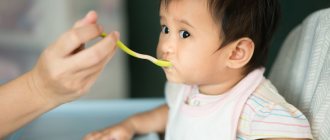Do you know what meteodiathesis is? Even if not, you have probably encountered its manifestations. Some children become lethargic because of this disease, others lose their appetite, sleep is disturbed, and even begin to have problems with the stomach and intestines.
Symptoms of meteosensitivity (meteodiathesis) are observed in 80% of infants. Babies react to literally everything - to small changes in temperature and humidity, cold or heat, cloudiness, precipitation. After a year, the same number of babies still have an overly “demanding” attitude to the weather, but they no longer respond to every metamorphosis.
Causes of weather sensitivity in children
Man always reacts to the weather. When you move the needles on thermometers, barometers and other instruments, the body also changes. Doctors call this reaction meteotropic. Its mechanism is explained simply: when the weather changes, the level of oxygen in the air always decreases, because of this the brain and other organs of people, young and old, experience oxygen starvation (hypoxia), and the adrenal glands release large quantities of adrenaline, a stress hormone, into the blood. And in weather-dependent children, during unfavorable weather periods, the number of blood leukocytes - white blood cells - also increases. The same thing happens during inflammatory and infectious processes. That is, the body of meteoropathic children is protected from weather changes in the same way as from diseases.
Changes are controlled by the autonomic system, which is compared to the tentacles of a mollusk: scanning the external environment, they send signals about changes to the brain. Then the information goes further - to organs and tissues. If the recipients’ functions are well-functioning, then they have time to adapt, but if not, which is typical for children under 5 years of age and even older, symptoms of weather dependence appear. The most vulnerable organs “respond” first. More often than others, the cardiovascular, gastrointestinal and nervous systems show disruptions. Moreover, the child’s body reacts more violently to small metamorphoses than to large ones, so a child under 5 years old may not notice a magnetic storm, but react to light rain or light snow.
Meteor dependence in children. How can a baby survive?
From the cradle, the mother noticed a weather-dependent child. Here you can’t get by with just one medicine and a set of measures must be used.
- We increase immunity. Spend more time outdoors. This is the primary and mandatory rule for the growth and development of a child. Weather dependence in children is easier for children whose families lead a sports lifestyle.
- We toughen up the baby. Air baths in the summer, running barefoot on grass, sand, pebbles. Arrange contrast baths. It is advisable to take the baby to the sea for the summer.
- We eat right according to the season. During the season, we consume fresh fruits and berries to the maximum. In winter (in consultation with a pediatrician), we take vitamin C, E, B complexes and choose foods rich in these vitamins - citrus fruits, nuts, fish.
- . There are no special medications to treat weather dependence in children, but the doctor can recommend herbs, homeopathic medicines or folk remedies.
Two options
Doctors divide children who react to the weather into two groups. In one there are healthy babies with undeveloped adaptive capabilities. With changes in temperature and humidity, overloads literally fall on them, weakening the immune system.
And then weather dependence leaves “destructions” similar to those caused by psychological and physical stress. The second category consists of children with health problems. In this case, the following are especially dangerous: sudden cold snaps, windless heat, sudden changes in atmospheric pressure, high humidity, strong winds, rain and fog.
Weather conditions aggravate the underlying disease. Thus, for toddlers with bronchial asthma, the days when a cold front passes, with a decrease or increase in atmospheric pressure, high humidity and strong winds, will be unfavorable. Ailments of the digestive system often become more active from September to November (off-season) and from January to March (the lowest temperatures of the year). If a child has enuresis, then most likely he will not “get past” the increased atmospheric pressure, and the number of “dry” nights will increase when there is not a cloud in the sky. Babies with attention deficit hyperactivity disorder are vulnerable to increased solar activity.
How to help a child?
- Every child needs to follow a daily routine. This helps increase the body's resistance. If, say, the weather changes today, then it is advisable for the baby to spend the day in a calm environment. These days you need to avoid stress. The best friends of weather sensitivity are a computer and a TV.
- The child also needs physical activity. This will help him cope with weather changes more painlessly. Here we are talking about exercises, playing tag, sledding and visiting the sports section. Classes in the pool are considered the most versatile. Gymnastics and contrast douches will also be beneficial.
- A calm baby can more easily cope with weather problems. If negative emotions arise, it is advisable for the baby to take sedatives. You should consult your doctor about this.
- In “difficult” times, the child’s menu should certainly include seaweed, potatoes and apples; in the absence of allergies – honey, juices and fresh herbs. On such days, spicy and fatty foods are contraindicated.
- Vitamins E, C and group B help overcome poor health and perfectly strengthen the body. They should be taken in courses.
Symptoms and factors of meteosensitivity
There are hereditary and acquired factors of meteosensitivity. Thus, a genetically based failure in “communication” between the nervous, endocrine and immune systems when environmental conditions change causes changes in blood circulation and breathing. And older babies, who have been cleared of the diagnosis of PEP (perinatal encephalopathy), resulting from a difficult birth, experience convulsions and colic even at 2-3 years of age.
In the scientific literature, meteosensitivity is considered as a pre-illness state with all the ensuing symptoms - bad mood, feeling tired, loss of appetite, moodiness.
A variant of the meteotropic reaction is cooling, for example, of the throat or nasopharynx, after which the body’s weakened defense opens the door to pathogenic microbes. Therefore, it is important for weather-sensitive children to be dressed according to the weather both indoors and outdoors. To control the situation, you should hang a thermometer in your apartment. And when the air temperature drops, turn on the heater.
Acute reactions to changing environmental conditions are especially dangerous for children with low immunity. The stress caused by the body's inadequate response to changing weather conditions further undermines the protective forces, and then illness is not far away. Walks, hardening procedures, massage, games and other activities should also be dosed.
Meteor dependence in children. How can a mother survive?
Mom is offered the same set of products and even more.
You definitely need to monitor your blood pressure. According to medical statistics, most strokes occur during a sudden change in weather. Another manifestation of the disease of weather dependence is various neuroses. Our nervous system also cannot withstand changes in nature and begins to work in increased mode. Quarrels and showdowns may arise in the family. Don't forget - there's a baby in the house! And he should not witness the unpleasant symptoms of dependence on weather changes. It is advisable to surround each other with warmth and care, home comfort. And the unpleasant illness - weather dependence in children - will definitely disappear from the mother and her children!
| Return to list |
Front line
Most often, parents check the weather when getting their baby ready for a walk. But they do not pay attention to the formation and movement of air fronts in the atmosphere, accompanied by sharp pressure surges. While there are no obvious changes in the weather, adults do not associate the child’s condition with natural phenomena. And they are perplexed: the weather is wonderful outside, but the baby is lethargic, does not want to run around with his peers on the lawn, but prefers to sit quietly in the shade next to his mother, or even refuses exercise altogether.
This behavior is classified as preliminary or signal reactions that develop 12 or more hours before external changes. When everything becomes obvious, namely, the air temperature drops or rises, precipitation stops or, conversely, precipitation occurs, trace symptoms appear. For 80% of kids, both work: having responded to global changes, the baby continues to perceive more specific ones, which means the duration of the period of poor health increases. Only 20% of children perceive one type of signal.
Facts and figures
• Babies with dark hair, premature babies and twins are more sensitive to weather changes.
We wrote in more detail about premature babies in the article:
| Premature babies: development, weight, causes of premature birth Napoleon and Suvorov, Byron and Schiller, Rousseau and Goethe, Mozart and Glinka, Newton, Mendeleev and Darwin... What do you think unites these people - besides the fact that their names are known to all of humanity? Let's reveal a secret: all these people were born prematurely. According to statistics, about 15 million children in... |
• Children react especially acutely to weather changes during critical periods of immunity formation - from 1 year to 3 years. • After vaccinations, the body is more difficult to tolerate natural disturbances. • Over the past 5 years, in children aged 3-5 years with chronic diseases of the digestive tract, meteosensitivity has increased by 4.8%. • Among allergy sufferers, there are 9% more weather-dependent children today than 10 years ago. • Increased meteosensitivity is found in more than half of children with bronchial asthma.
Meteor dependence. You can win! Mikhail Khoroshevsky, 2021
The main causes and symptoms of weather dependence in infants
Let us recall that the changes that occur in the human body under the influence of meteorological factors are called meteopathic reactions, or meteoneurosis (meteolability). Typically, such a reaction manifests itself in a vivid form if the body of an adult or child is weakened by pathological processes or the activity of the protective, adaptive and immune systems is disrupted, although the weak manifestation of some symptoms of meteodependence in infants is a completely natural phenomenon.
The weather dependence of infants is especially acute against the background of complications such as intrauterine infections, prematurity or developmental abnormalities.
Many parents, and especially mothers of newborn children, have noticed a connection between weather changes and changes in the mood of their babies. It gets colder - the child cries for no apparent reason, the sun comes out - he calms down. Some children become restless on windy days, even if they are not outside, and sometimes the baby does not sleep all night, and the next day the weather changes.
Modern medicine explains this connection by weather dependence, which literally all children are susceptible to, and about 80% of newborns react to weather vagaries quite actively.
As mentioned above, in a certain sense, the weather dependence of infants is a physiological norm, but this does not mean that the child’s condition during the period of weather changes can be neglected.
Any change or deviation in the behavior, well-being or mood of an infant should be considered as a possible symptom. For example, when the weather changes, children with heart defects experience weakness and suffocation. Children suffering from asthmatic conditions and respiratory diseases have a hard time enduring abnormal fluctuations in atmospheric conditions. Meteoneurosis also provokes manifestations of diseases such as psoriasis, eczema and neurodermatitis.
If you experience weather dependency, you should immediately consult a doctor. Thanks to expert advice and advance preparation for possible reactions, parents can alleviate the baby’s condition, that is, his reaction to the influence of the weather.
Why are children under one year of age so vulnerable to environmental changes?
Experienced pediatricians warn young mothers in advance that until the fontanelle areas on the skull are completely overgrown, the child will be especially sensitive to climatic changes, as well as changes in atmospheric pressure and magnetic storms. However, even after the fontanels become overgrown, the baby can retain the habit of reacting to weather changes. This is due to the immaturity of most internal systems of the body.
For example, the vegetative system, which is responsible for adapting the body to the ambient temperature, may react overly actively in a baby, stimulating the respiratory, digestive, and vascular system. At this moment, the child feels discomfort, which he expresses through active movements and crying.
On
a note
!
Weather sensitivity
is not considered an official medical diagnosis
,
however, this condition must be taken into account when examining a child by a pediatrician
.
Even if the mother does not see a connection between the baby’s mood and weather
changes ,
she should pay attention to all the nuances the child’s condition and report this to the doctor
.
One of the reasons for weather dependence is heredity. In this case, it is worth learning more about how meteoneurosis developed in the parent - what it is associated with and what consequences it led to. By collecting the necessary information and consulting with a specialist, parents can prevent the most adverse consequences of an inherited disease.
Most people actively react to the lack of oxygen in the air, which is accompanied by weather disasters.
Lack of oxygen leads to hypoxia and deterioration of well-being: fatigue, rapid heartbeat, stress. Experiencing hypoxia, children lose their appetite, react violently and negatively to any actions of their parents, scream and do not want to sleep. According to the same scheme, the baby’s organs and systems react to magnetic storms and changes in atmospheric pressure.
The reason for such conditions is that the underdevelopment of the neuroendocrine system does not allow the child’s body to compensate for the negative effects of the environment in the same way as it does in the body of a healthy adult.
Most often, meteoneurosis manifests itself in the off-season, when atmospheric pressure, as well as temperature, humidity and geomagnetic background, change sharply. During this period, a weather-dependent child cries a lot, he is excited, refuses the mother's breast, loses appetite, twists his legs, and often burps. Weather dependence can also be expressed in indigestion, muscle tension, and reluctance to sleep.
On
a note
!
Loss
of appetite is a fairly serious indicator that
some changes are
occurring in
a child ’s body .
However,
in some cases , instinct tells the baby
that
it is worth eating
a little less ,
since the gastrointestinal tract is not ready for active work
.
Sometimes lack of appetite manifests itself in hot weather ,
sometimes
it indicates some problems with mother 's
milk .
These painful conditions for both the baby and the parents cannot be ignored. You should definitely consult a doctor, tell in detail about the changes taking place and patiently undergo all the necessary examinations by a neurologist, ophthalmologist, surgeon, traumatologist and orthopedist.
The fact is that meteosensitivity aggravates the baby’s hidden health problems. In other words, if the baby has a weak digestive tract, then during the period of deterioration in general well-being associated with a negative reaction to weather phenomena, problems of the digestive system will manifest themselves to the greatest extent. By identifying a weak point using weather dependence, parents can stop or even prevent the development of pathology, thereby making the future life easier for the baby and themselves.
Many parents also notice that when the weather changes, the child seems to lose acquired psychomotor skills, and his emotional background also decreases. He seems to be forgetting how to play with his favorite rattles and doesn’t want to smile in response to his parents’ affection. Some children, who have already learned to sit, refuse to do this, causing concern for mothers and fathers: what if these are signs of some serious illness or degradation of the child? Fortunately, pediatricians know that weather dependence can manifest itself in this way. The weather will change, the child will feel better - and will again sit, play pats and laugh loudly, delighting the parents.
Weather dependence is a disease that you should be careful about.
Even if we perceive weather dependence as a physiological norm, we cannot neglect it and expect that it will go away on its own with age. The fact is that the human body is a complex biological mechanism that needs to correct the processes occurring in it. Thus, the tendency to react to changes in weather can only increase over the years, and if at the age of up to one year the baby reacted to changes in pressure only with a lack of appetite, then later new problems may appear: headaches, intestinal disorders, neurological dysfunctions. Moreover, the duration of symptoms of weather dependence may increase - the child will begin to react to atmospheric changes a day before their onset, and poor health will persist for several days.
During such periods, the ability to communicate and learn will decrease, the baby will not receive the necessary skills, will not learn new words, which will affect his development.
End of introductory fragment.
And not just the weather
If a baby doesn’t like to ride in an elevator, this does not mean that he is afraid of closed spaces or the noise of machinery. It is possible that when moving up and down the baby will feel unwell. On the upper floors the atmospheric pressure is higher. When going up in an elevator, the baby experiences a very rapid change in parameters. They grow by 0.08 mmHg per second. Art., which is 100 times faster than during the passage of a weather front. And the baby cannot help but feel this difference. But this happens several times a day. Thus, a small inhabitant of an apartment on the 16th floor experiences a change in pressure of 5 mm Hg. Art. at least 2 times a day. The baby will most likely react to metamorphosis with a change in mood.
Therefore, if a baby, happily returning from a walk, finds himself at home after a ride in the elevator, bursts into tears or begins to be capricious, do not be surprised and help him cope with his illness, for example, give him a light massage.
Diagnostics of meteotropic reactions
Diagnosing meteotropic reactions in children is a difficult task. To begin with, the meteorological history is assessed - a list of conditions that occur with changes in air temperature and humidity, solar activity, wind speed and other data is compiled. The dates of exacerbation are correlated with weather forecasts, the factors that provoke deterioration in well-being are identified, and a plan for their prevention is drawn up. In preventing weather dependence, doctors are guided by a simple rule: “if you see clouds, take an umbrella with you.” Which means: measures should be taken in advance. In order for the baby to suffer less from weather metamorphoses, his parents should be attentive to the indicators of the barometer, street thermometer and weather reports.
Special procedures for relief from weather dependence are prescribed for children after 3 years of age. They are carried out in pressure units with adjustable pressure levels. A course in modeling atmospheric pressure fluctuations will allow the body to form an individual protective and adaptive complex that works like a training reaction. As a result, the body's resistance to unstable environmental conditions increases, and thanks to this, meteorological reactions are stopped at the very beginning.
Guide to action
Medical forecasts about changes in health status due to weather can only be made one or two days in advance. Parents should focus on them, ignoring longer calculations. On average, quite a lot of unfavorable days accumulate throughout the year; according to statistics, every fifth one is considered to be such.
When parents are attuned to inevitable changes, children tolerate them more easily. Children can be helped if they quietly restrain their activity, follow a gentle regimen, do not overload the digestive system, and take medications intended to prevent chronic diseases. You need to start taking the medicine two to three days before natural disturbances.
Children with breathing disorders, for example, with obstructive bronchitis, when the air temperature passes 0°C, should be given medications prescribed by a doctor that affect the tone of the bronchi and thin the mucus. If your baby is not doing well with his intestines, it is better to have a medicine on hand that will stabilize his functioning.











